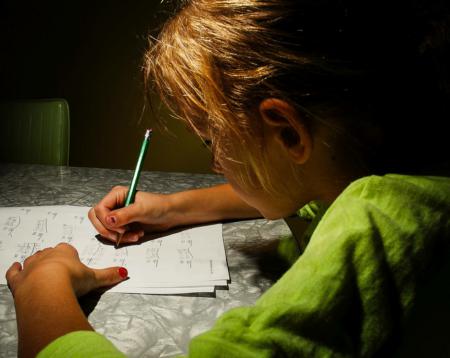Education helps us to soar
These days, nobody thinks that flying over long distances is impossible. Simply buy a ticket, board the airplane, drink your complimentary cranberry juice, and hours later you're a thousand miles away from where you started.
There was a time when the idea of aviation seemed absolutely ridiculous. People smirked at engineers who were trying to build flying machines. Some probably thought aviation was for empty-headed dreamers and mad-scientist types. If humans were meant to soar above the clouds, God would have given them wings, some may have said.
Walking through the massive aircraft hangar at the Smithsonian National Air and Space Museum's Udvar-Hazy Center outside Washington, it's clear that God did give human beings wings -- just not in the way we'd expected.
The hangar is full of planes, helicopters and spacecraft from every culture and every stage of flight -- old biplanes, colorful hobby gliders, World War II bombers, tiny acrobatic planes, space capsules and even a space shuttle.
Aviation history is laid out there, from the huge successes to the miserable failures, from the massively famous planes that changed the world for worse and for better: the Enola Gay, which dropped the atomic bomb on the Japanese city of Hiroshima, and the space shuttle Discovery. There are planes I'd never heard of and inadvisable models that crashed on takeoff.
At the museum, you can see that the wings God gave us aren't made of feathers or steel. They are made of knowledge and education.
Cavemen couldn't have flown because they did not have the knowledge to do so. But as the years passed and people who dreamed researched, built and experimented, the amount of things we knew about how to fly blossomed.
People looked at birds and figured out what kept them aloft. People hurled prototypes off cliffs and towers. They wrote down what they learned.
Engineers studied and expanded on what they learned from them. The scientists at NASA couldn't have sent up Apollo 11, the spaceflight that landed the first humans on the moon, without that knowledge. Today's scientists are working on sending humans to Mars, and they owe a debt to Apollo 11.
Heading to Mars begins as a teenager, sitting in classrooms and libraries, learning, reading, discussing and doing homework.
Homework's not always fun. School isn't always fun. But without it, we'd still be sitting on a rock somewhere, wondering about those funny little points of light in the sky. Education and actively applying that education to the problems we face in our communities and our world is the way up.
Education gives us wings.
KAREN OSBORNE IS A COLUMNIST WITH THE CATHOLIC NEWS SERVICE.
- Karen Osborne is a columnist for Catholic News Service



















